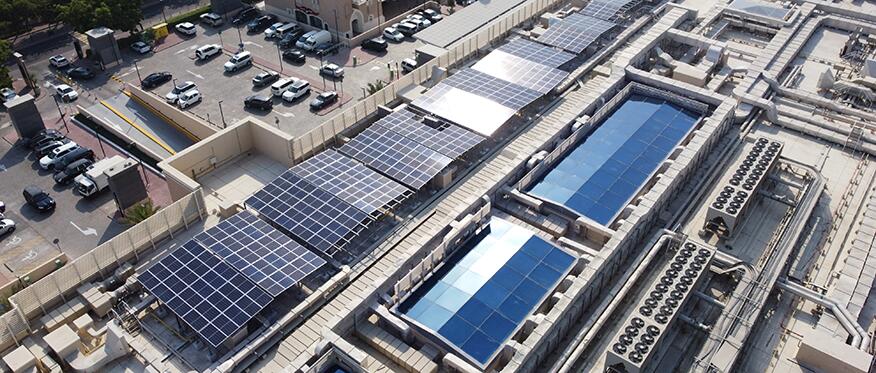
Abu Dhabi's Noor Abu Dhabi solar plant, one of the world's largest single-site solar projects, underscores the UAE's dedication to solar energy. This plant has a capacity of 1.2 gigawatts and can power approximately 90,000 homes, significantly contributing to the nation’s renewable energy targets. The plant's success exemplifies the UAE's innovative approach to harnessing solar power.
Dubai’s Mohammed bin Rashid Al Maktoum Solar Park is another hallmark of the UAE's solar ambitions. Set to reach a capacity of 5,000 megawatts by 2030, this park is instrumental in Dubai’s Clean Energy Strategy, which aims to provide 75% of Dubai’s total power output from clean energy sources. The park's phased development highlights the UAE’s methodical and scalable approach to renewable energy.
The UAE’s strategic investments in solar energy extend beyond its borders. Through entities like Masdar, the UAE has invested in numerous international solar projects, enhancing its global influence in the renewable energy sector. Masdar’s portfolio includes solar power projects in countries like Jordan, Egypt, and Morocco, demonstrating the UAE’s commitment to fostering global renewable energy partnerships.
The nation's solar energy initiatives are supported by favorable government policies and regulatory frameworks. The UAE’s Energy Strategy 2050 aims to increase the contribution of clean energy in the total energy mix to 50%, reducing the carbon footprint of power generation by 70%. This strategy aligns with the UAE’s broader environmental goals and its vision for a sustainable future.
The UAE's advancements in solar energy are also driven by technological innovation. The nation has embraced cutting-edge technologies such as photovoltaic (PV) panels and concentrated solar power (CSP) systems to optimize solar energy production. These technologies are essential in enhancing the efficiency and reliability of solar power plants.
Economic factors also play a crucial role in the UAE's solar energy expansion. The declining cost of solar power generation has made it a more viable and attractive option for the UAE. The country’s solar projects have achieved record-low tariffs, making solar power competitive with traditional energy sources.
Moreover, the UAE’s focus on research and development in solar energy is fostering innovation and driving progress in the sector. Collaborative efforts between academic institutions, research centers, and industry stakeholders are critical in developing new technologies and improving existing ones. These collaborations are essential in ensuring the UAE remains at the forefront of solar energy advancements.
The UAE's efforts in solar energy have garnered international recognition, positioning the country as a model for other nations looking to transition to renewable energy. The success of the UAE’s solar projects is a testament to the nation’s strategic vision, robust policy framework, and commitment to sustainability.
The UAE’s solar energy sector is poised for continued growth, driven by ongoing projects, technological advancements, and supportive government policies. As the nation progresses towards its renewable energy goals, its achievements in the solar sector will play a pivotal role in shaping the future of energy in the UAE and beyond. The UAE’s leadership in solar energy underscores its commitment to a sustainable and resilient energy future.
Topics
Live News
